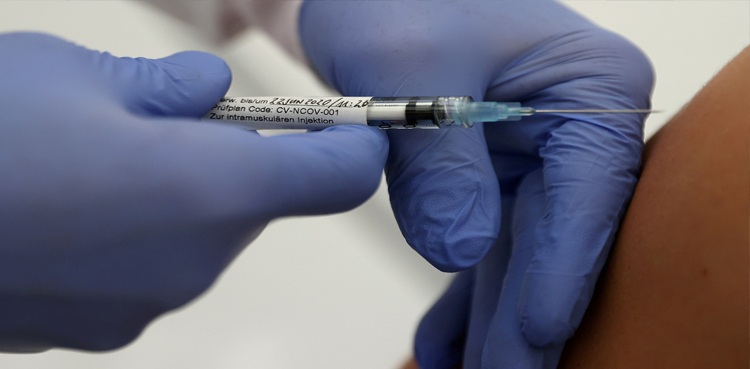
The following is a roundup of some of the latest scientific studies on the novel coronavirus and efforts to find treatments and vaccines for COVID-19, the illness caused by the virus.
mRNA vaccines likely effective against India variant
Both of the mRNA COVID-19 vaccines from Pfizer/BioNTech, and Moderna are likely effective against the coronavirus variant that is rapidly spreading throughout India and several other countries, according to laboratory experiments.
Researchers exposed the variant known as B.1.617.1 to blood serum samples from 15 volunteers with antibodies induced by the Moderna vaccine, 10 volunteers with antibodies after receiving the Pfizer/BioNTech vaccine, and 24 people with antibodies after recovering from COVID-19.
In a paper published on Monday on bioRxiv ahead of peer review, the research team found the India variant to be 6.8-fold more resistant to antibody neutralization in an all three groups.
“Despite this, a majority of the sera from convalescent individuals and all sera from vaccinated individuals were still able to neutralize the B.1.617.1 variant,” they said.
The variant may continue to evolve, researchers noted, and it will be important to monitor how additional mutations affect vaccine efficacy.
People with HIV at risk for more severe COVID-19
People with HIV who become infected with the coronavirus may be at higher risk for severe illness, according to new data. Between August and October, researchers studied 955 people with HIV and 1,062 people without it.
The rate of COVID-19 was 3.7% in people with HIV versus 7.4% in the HIV-negative group.
Among the 31 people with HIV and 70 people without it who became infected with the coronavirus, however, the likelihood of severe COVID-19 was 5.52-fold higher in the HIV group, the research team reported in The Lancet HIV.
READ ALSO: Top scientists question the need for COVID-19 booster shots
Among those who had recovered from COVID-19, antibody levels were significantly lower in people with HIV.
That raises concern that HIV infection might blunt people’s immune response to the virus – and to vaccines, the authors said.
“People living with HIV should be followed up after vaccination, with antibody and T-cell activity measured when possible, to ensure they mount a sufficient immune response to prevent cases of severe COVID-19,” the researchers advise.
Heart damage rare with mild COVID-19
Mild cases of COVID-19 in otherwise healthy adults are unlikely to cause lasting damage to the heart, a small UK study suggests.
Doctors compared 74 healthcare workers who had recovered from mild or asymptomatic COVID-19 with 75 individuals who had not been infected with the coronavirus.
Six months after the COVID-19 survivors had been diagnosed, participants in the two groups had no differences in heart structure or function, researchers found.
The findings, published on Saturday in JACC: Cardiovascular Imaging, show “that if you are a healthy adult of working age and have had mild, non-hospitalized COVID, cardiac effects six months later are rare,” said co-author Dr. James Moon of University College London and Barts Heart Center in London.
The study does not prove that mild cases won’t cause heart damage, Dr. Moon noted.
“But from a population perspective, after mild disease, this is very reassuring.”
The post mRNA vaccines appear effective vs India variant; people with HIV at higher risk for severe COVID-19 appeared first on ARY NEWS.


0 Comments